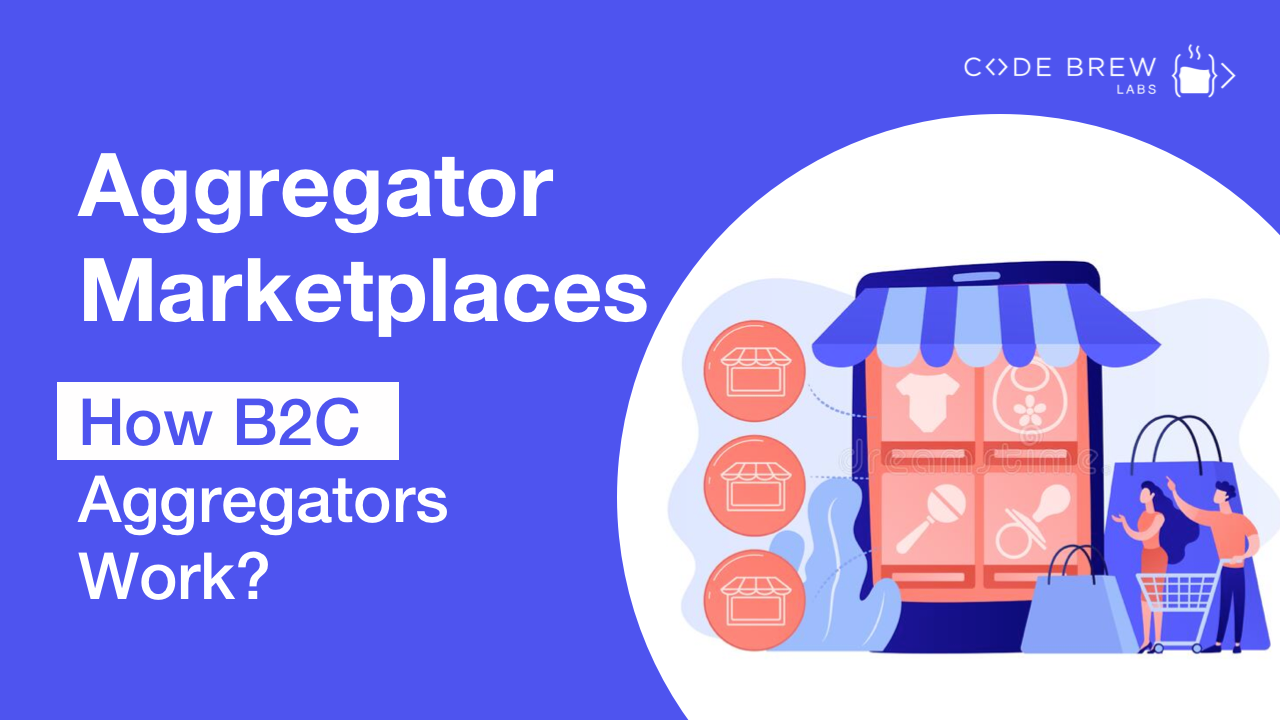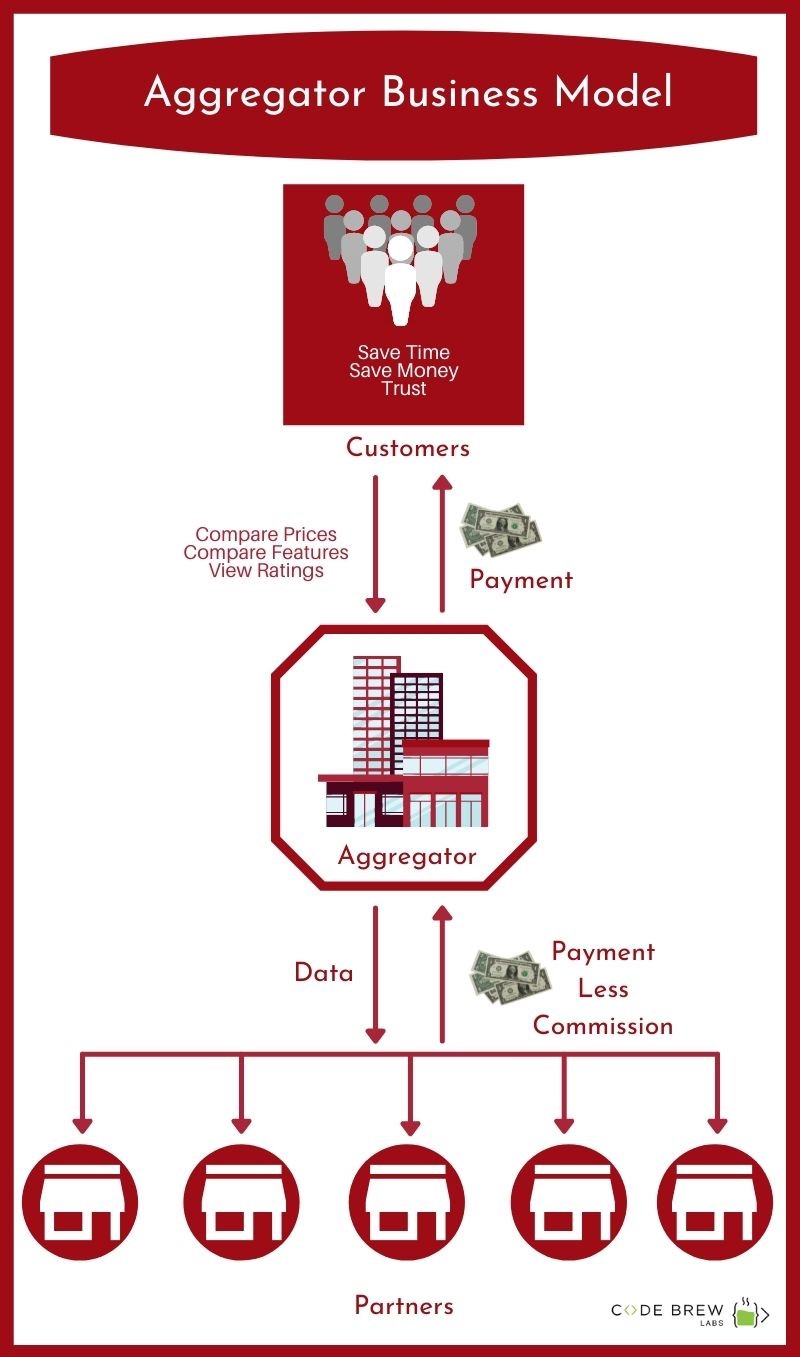
Online shopping has become an inherent habit among consumers and aggregator marketplaces seem like a perfect platform as they bring together multiple vendors and options to choose from. Aggregators are a popular ecommerce business model in many industries such as food, taxi booking, beauty products, fashion, etc. When talking about aggregator marketplace, food aggregators and taxi aggregators are most commonly used on-demand aggregator businesses such as Uber and Zomato.
Table of Content
B2C aggregators have become even more popular after COVID-19 as a larger number of consumers have shifted towards online shopping. According to a research, global aggregators market is expected to expand by $1 trillion by 2025.
This projected growth has attracted interest from entrepreneurs who want to launch an aggregator business. If you are also interested in food aggregator app development or launching a taxi aggregator app like Uber, then the foremost step is to understand what is aggregator business model?
In this article, we will answer basic questions about online aggregators.
What Is Aggregator Business Model?
Aggregator business model is one of the most successful subset of ecosystem business model. An aggregator model is a networking ecommerce business model where an aggregator collects product or services data from multiple or competitive vendors and displays it on its website or marketplace platform.
Typically the B2C aggregator, itself, does not have its own manufacturing unit but instead depends upon its ability to create a domain that allows consumers to compare prices and specifications of competitor manufacturers and buy a product after thorough diligence.
Irrespective of the business sector an aggregator caters to, they share some common attributes:
Aggregator business model is often confused with marketplace business model, but these two business models have basic differences.
A marketplace is an eCommerce platform that collates products and services offered by different manufacturers or providers. An online marketplace acts as a mediator or bridge that helps manufacturers reach their consumers. The product prices are decided by the manufacturer or seller and the online marketplace platform charges a commission on sales. Some popular examples of online marketplace business models are Amazon business model, Flipkart business model, etc.
B2C aggregators also organize services or products from different providers but they target unorganized and populated sectors like hotels, taxi, food, etc. Although the sellers are partners of the online aggregators but the products are not sold under the seller’s name. The products or services are sold under the brand name of the aggregator. The price of products or services is also determined by the aggregator. Popular examples of aggregator business model are Uber business model, Oyo business model, etc.
For launching your food aggregator or a taxi aggregator app like Uber, it is important to have thorough understanding of how a B2C aggregator works.

Aggregator Business Model
Aggregators are gaining popularity among providers and consumers because they help in saving time, money and generating a trust chain, thus creating value proposition.
Here is an overview of benefits of aggregator business model for consumers and sellers:
Owing to these benefits, a large number of consumers and sellers are choosing aggregators as a means to serve their demand and supply needs respectively. This makes launching an aggregator marketplace a profitable business.
Advantages of aggregator business model for the entrepreneur:
So, why is it a good idea to launch an aggregator? Entrepreneurs are inclining towards food aggregator app development or building taxi aggregator app like Uber because an aggregator business model has multiple advantages:
As an aggregator, you can choose from two revenue models.
Launching your aggregator business is a stepwise process.
The features of your aggregator app will depend upon the type of aggregator you plan to launch. Here we will discuss basic features of food aggregators and taxi aggregators.
When launching a food aggregator, you need to provide platforms for customers, restaurants, and delivery agents. Here is a list of features you need to include in the customer facing food aggregator app:
When launching a taxi aggregator like Uber, you need to provide following features:
Aggregator businesses are on a rise owing to the changing consumer behavior. The aggregator market has many players and you need cutting edge technology to outsmart your competition. Code Brew Labs is a mobile app development company you can trust for reliable and innovative aggregator app building. Connect with us to make your aggregator business a reality. Let’s connect now!
